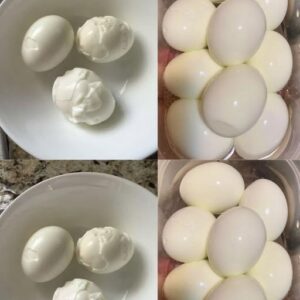Eggs are one of the most common ingredients used for frying, baking, boiling, and everyday cooking. Still,
many people wonder whether they should wash eggs before using them. The answer depends mostly on how the
eggs were handled before they reached your kitchen, making it a bit more nuanced than a simple yes or no.
Fresh eggs naturally come with a thin outer layer called the cuticle, sometimes referred to as the “bloom.”
This layer helps protect the shell and keeps it from losing moisture too quickly. When eggs are washed,
this natural coating is removed, making the shell more porous. In many countries, store-bought eggs
are already cleaned and prepared before packaging, which means they arrive ready to use.
Because of that, giving store-bought eggs another wash at home isn’t recommended, as it may affect the shell’s surface.
When it comes to safety, the most important factor is proper handling and thorough cooking. Heating eggs
fully—especially when boiling—adds an extra level of protection because high temperatures help ensure the outside of the shell is clean before the egg is peeled or served.
In the end, whether or not you wash eggs depends on where they come from. Farm-fresh eggs with the cuticle
intact are often best left unwashed until right before use, while commercially prepared eggs require no
additional cleaning. Regardless of the source, careful handling and proper cooking are the key steps to keeping your kitchen practices safe and reliable.





